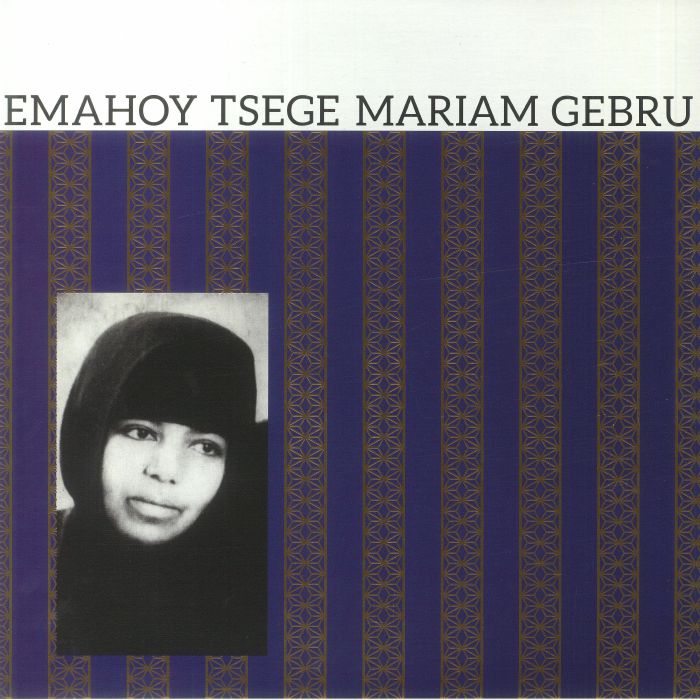Dusted Down – Emahoy Tsege Mariam Gebru by Emahoy Tsege Mariam Gebru
Noah Sparkes takes a second look at “The Honky Tonk Nun”

Emahoy Tsege Mariam Gebru – Emahoy Tsege Mariam Gebru (Mississippi)
Emahoy Tsege Mariam Gebru’s music is a fascinating amalgam of different influences. But in order to see how these beautiful compositions came to be, it’s worth briefly exploring the storied life of the Ethiopian nun, exile, composer, and pianist. Born in Addis Ababa in 1923, Emahoy’s parents were wealthy members of the Ethiopian upper class. At six-years-old, Emahoy and her sister would be sent to a boarding school in Switzerland where she would study violin and piano. Following this classical training, in 1933 Emahoy returned to Ethiopia before being evacuated in 1937 during the Italian invasion. After the war, Emahoy ended up in Cairo, studying under Alexander Kontorowicz, a Polish concert violinist employed by the King of Egypt. Along with Kontorowicz (who had attained a role performing for the Emperor of Ethiopia), she would then return to her home country.
At this point the musical influence for Emahoy had been mostly Western classical, but after becoming ordained as a nun and researching the traditional religious music of Saint Yared (a 6th-century Aksumite composer), Emahoy’s influence began to attain unique characteristics. The music would lose some of the rigidity of classical and gain a looser, more lyrical quality. This has led many to retroactively group Emahoy Tsege Mariam Gebru together with Ethio-jazz players like Mulatu Astatke. Though this is understandable given their consistent flirtation with bluesy Ethiopian pentatonic scales, Emahoy’s work feels more indebted to early 20th century classical music than it does to the jazz idiom. Indeed, Emahoy herself dismissed such categorisation in a 2017 interview with the Guardian. In truth, her music is almost impossible to pin down.
Following 10 years of living barefoot at a monastery in the hills of Northern Ethiopia, Emahoy crafted a style that feels both deeply familiar and unlike anything else. Even in 2022, her sound remains peerless; a fascinating creative island.
And now, courtesy of Mississippi Records, we have a reissue of a collection of her early recordings from the 1960s. The LP, which consists of eleven solo piano works, is another testament to her inimitability. All of the tracks will be familiar to listeners who have heard her terrific compilation released by Buda Musique, Ethiopiques Volume 21: Ethiopia Song but here they are accompanied by song notes from Emahoy herself.
The music is wonderful, like if Debussy had visited New Orleans in 1910. Her playing is free but controlled, playful but moving, subtle but virtuosic, classical but never stuffy. From the first moments of opener, “Mother’s Love” we immediately hear Emahoy’s synthesis of Ethiopian qañat scales and Western classical. There is also a charming feature of her work – arising from her blue-note inflected style and the quality of the audio recording – that unintentionally evokes an early jazz feel. It is this nostalgic sound that perhaps led the BBC to title her documentary “The Honky Tonk Nun”.
At 98 years old, Emahoy now resides in Jerusalem, where she has lived since leaving Ethiopia in 1984. Even now, like she has done through her whole career, Emahoy continues to use the proceeds from her music to help the less fortunate in her community. The Emahoy Tsegue Mariam Music Foundation – which co-released this album – has been continuing this wonderful musical and philanthropic legacy.
Noah Sparkes